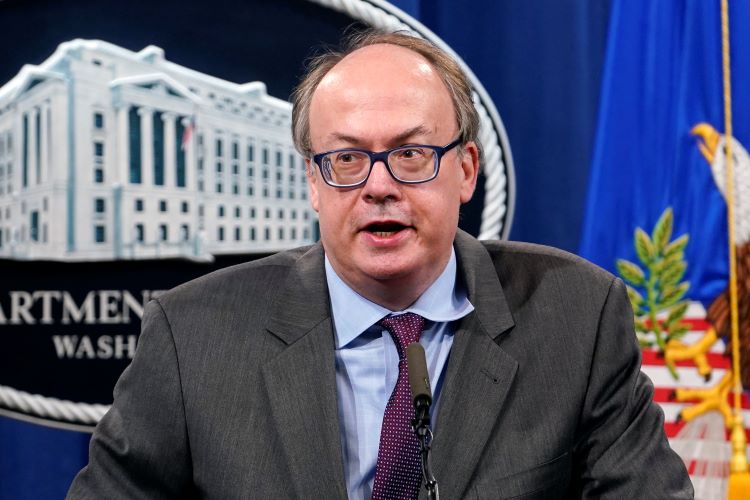ABA amicus brief asks Supreme Court to uphold use of race-conscious admissions policies
Diversity
ABA amicus brief asks Supreme Court to uphold use of race-conscious admissions policies
August 1, 2022, 2:16 pm CDT
Image from Shutterstock.
The U.S. Supreme Court should uphold Grutter v. Bollinger, its decision from 2003 that allowed colleges and universities to use race as one factor in admissions decisions, the ABA said in an amicus brief filed Monday. The cases currently before the Supreme Court involve Harvard University and the University of North Carolina at Chapel Hill.
Students for Fair Admissions, a nonprofit membership group of students, parents and others who say “racial classifications and preferences in college admissions are unfair, unnecessary and unconstitutional,” is asking the Supreme Court to rule that Harvard’s race-conscious admissions process violates Title VI of the Civil Rights Act of 1964 by discriminating against Asian American applicants.
In the second case, the SFFA is urging the Supreme Court to hold that the UNC, a public university, violates Title VI and the 14th Amendment’s equal protection clause by considering race in its admissions process.
The Supreme Court agreed in January to hear the SFFA’s challenges to race-conscious admissions after lower courts rejected its arguments. Since the Supreme Court’s decision in Grutter, it has also upheld the use of race in admissions in Fisher v. University of Texas at Austin in 2016.
“Eliminating race-conscious admissions policies would inflict great harm on the legal profession and the nation,” the ABA wrote in its brief. “Such policies play a vital role in eliminating the taint of racism from our justice system and from other areas where lawyers perform vital functions.
“These admissions policies also ensure a more racially diverse legal profession and judiciary, which are essential to the legitimacy of our legal system and to the legal profession’s ability to better serve the needs of our diverse society.”
An ABA press release is here.
ABA has a long-standing interest in improving diversity in the profession
The ABA has long worked to improve the representation of all racial and ethnic groups in the legal profession in the United States. According to its brief, the association supported the development of a national program to encourage qualified individuals from minority groups to enter law school in 1967.
The association later convened a task force to study the underrepresentation of minorities in the bar and required all accredited U.S. law schools to “demonstrate by concrete action a commitment to diversity and inclusion by providing full opportunities for the study of law and entry into the profession by members of underrepresented groups, particularly racial and ethnic minorities, and a commitment to having a student body that is diverse with respect to gender, race and ethnicity.”
In 2008, the ABA adopted the following as part of its four primary goals: to “promote full and equal participation in the association, our profession and the justice system by all persons” and to “eliminate bias in the legal profession and the justice system.” The association advances this work through its Diversity and Inclusion Center, and according to its brief, it has filed amicus briefs in all Supreme Court cases involving the use of race and ethnicity in admissions decisions in higher education.
The ABA argued in its brief that the Supreme Court has recognized that college and university admissions policies that include race among their factors for admission create diverse student bodies that help eradicate racial biases and stereotypes. If Grutter is overturned, it would “deprive the legal system of this important tool to address racial bias,” the association said.
The ABA also contended that the full representation of racial and ethnic minorities in the legal profession bolsters the legitimacy of the country’s legal and political systems.
“A diverse bench and a diverse bar are important for inspiring greater public faith in the rule of law because they help signal to a diverse citizenry that their perspectives and interests are being taken into account,” the association wrote in its brief. “As Justice Elena Kagan has explained: ‘People look at an institution and they see people who are like them, who share their experiences, who they imagine share their set of values, and that’s a sort of natural thing and they feel more comfortable if that occurs.’”
Oral arguments have not been scheduled in the cases, which are Students for Fair Admissions v. President and Fellows of Harvard College and Students for Fair Admissions v. University of North Carolina. Cert petitions are here and here.
The Supreme Court planned to combine oral arguments in the two cases but announced in July that it will consider the challenges to race-conscious admissions separately. This allows Justice Ketanji Brown Jackson to participate in the case involving the UNC while recusing herself from the case involving Harvard, SCOTUSblog reports. She recently served on the university’s board of overseers.






